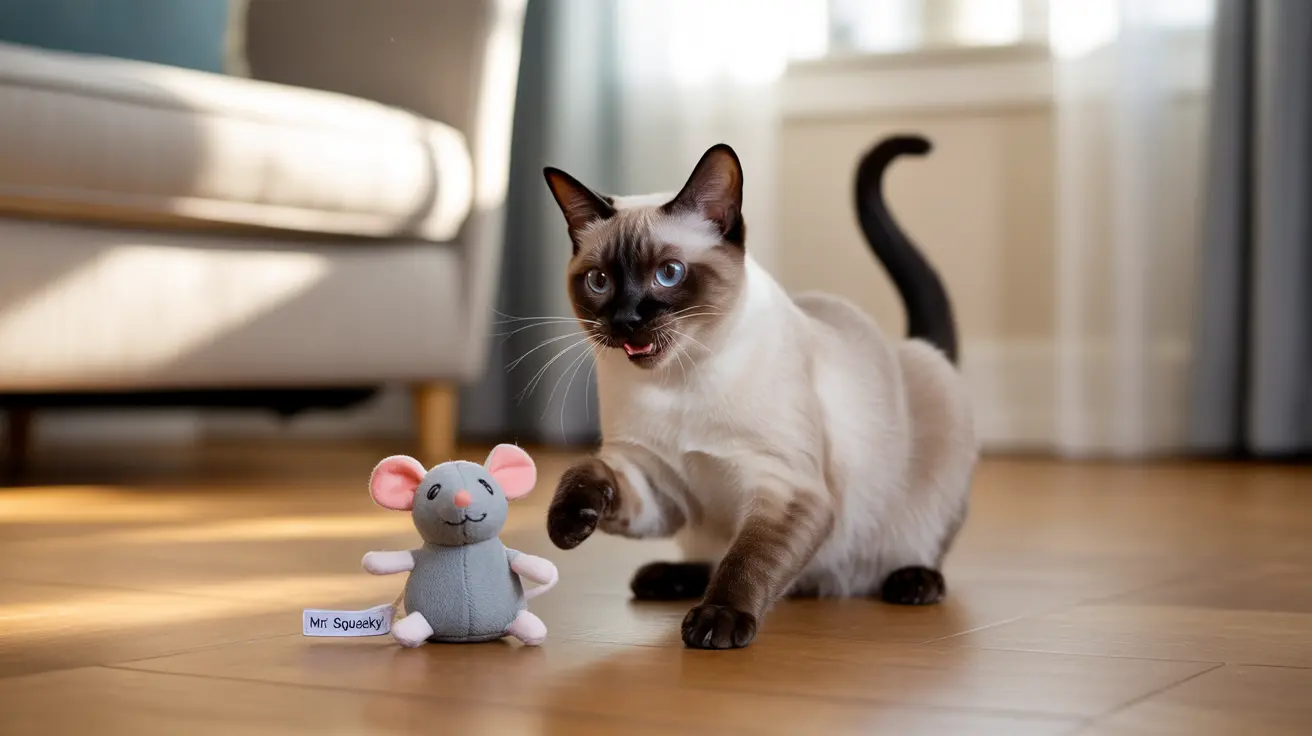Have you noticed your feline friend making squeaky sounds instead of their usual meow? This unexpected change in vocalization can leave many cat owners wondering about their pet's health and well-being. While some cats naturally squeak due to their personality or breed characteristics, others might develop this behavior due to various factors ranging from simple communication preferences to potential medical concerns.
Understanding why your cat squeaks instead of meowing is crucial for ensuring their health and happiness. Let's explore the various reasons behind this unique vocalization and learn when it might signal a need for veterinary attention.
Natural Causes of Cat Squeaking
Personality and Breed Characteristics
Some cats naturally communicate through squeaks rather than traditional meows. This can be particularly common in certain breeds or simply a matter of individual personality. Siamese cats, for instance, are known for their diverse vocal range, which often includes squeaking sounds.
Early Development and Learning
Kittens typically start with squeaking sounds before developing their full meow. Cats who were separated from their mothers too early or raised in isolation may retain these kitten-like vocalizations into adulthood, having never learned the traditional meow through social interaction.
Medical Reasons for Squeaking
Throat and Respiratory Issues
Upper respiratory infections, laryngitis, or throat irritation can cause changes in your cat's voice. These conditions may be accompanied by other symptoms such as sneezing, watery eyes, or difficulty breathing.
Structural Problems
Physical issues affecting the throat or vocal cords, such as growths, injuries, or foreign objects, can alter your cat's voice. These conditions often require immediate veterinary attention, especially if the change in vocalization is sudden.
When to Seek Veterinary Care
While some cats naturally squeak, certain situations warrant professional medical attention:
- Sudden changes in vocalization
- Squeaking accompanied by respiratory distress
- Signs of pain or discomfort
- Loss of appetite or energy
- Difficulty swallowing
- Excessive drooling
Behavioral Aspects of Squeaking
Cats may squeak when they're excited, happy, or trying to get attention. This form of communication is often accompanied by positive body language such as an upright tail, relaxed posture, and friendly eye contact. Understanding your cat's normal communication patterns can help you distinguish between natural squeaking and potential health concerns.
Frequently Asked Questions
Why does my cat only squeak instead of meowing?
Your cat may squeak instead of meowing due to natural personality traits, breed characteristics, or early developmental factors. However, if this is a new behavior, it could indicate a medical issue requiring veterinary attention.
Could my cat's squeaky voice be a sign of laryngitis or other throat problems?
Yes, laryngitis, upper respiratory infections, or other throat conditions can cause changes in your cat's voice. If accompanied by other symptoms like difficulty breathing or eating, consult your veterinarian.
How can I tell if my cat's squeaking means they are in pain or have a medical issue?
Look for additional signs such as changes in behavior, reduced appetite, lethargy, or visible discomfort. Any sudden change in vocalization combined with these symptoms warrants a veterinary visit.
Can some cats naturally squeak because of their breed or personality?
Yes, certain breeds are known for unique vocalizations, and individual cats may naturally prefer squeaking to meowing as their form of communication.
When should I take my cat to the vet if their meow changes to a squeak?
Seek veterinary care if the change in vocalization is sudden, accompanied by other symptoms, or if your cat shows signs of distress or discomfort.
Remember, while squeaking can be perfectly normal for some cats, any sudden changes in your pet's vocalization patterns should be monitored closely. When in doubt, consulting with your veterinarian is always the safest approach to ensuring your cat's continued health and well-being.






